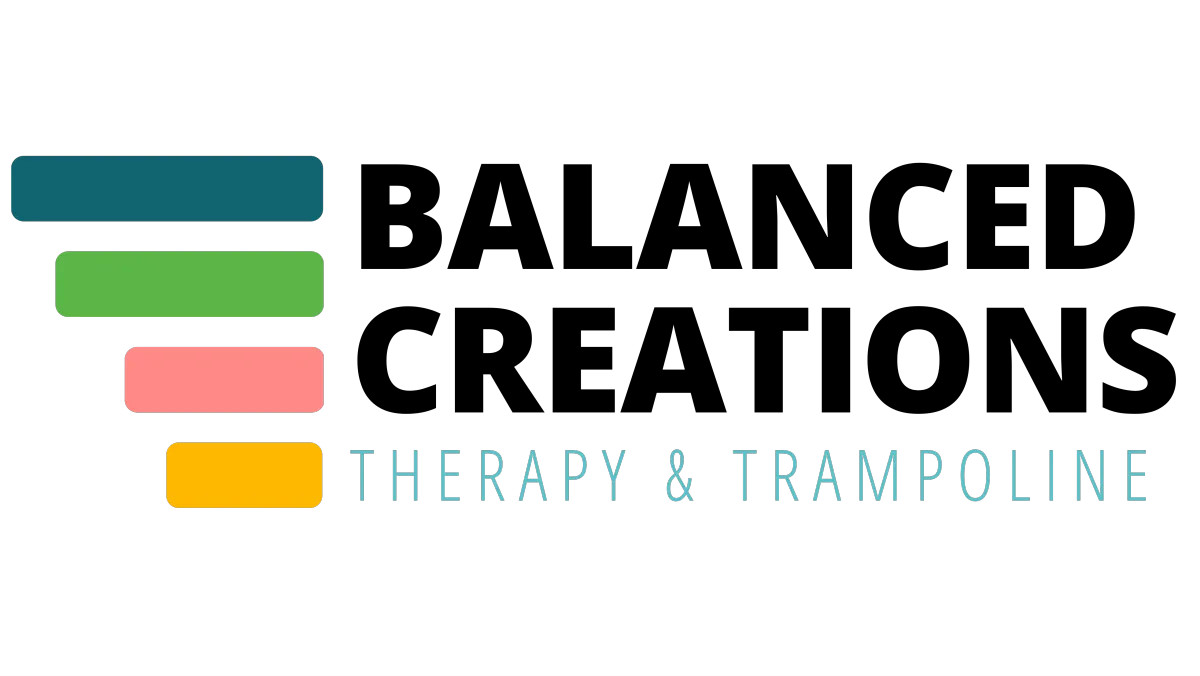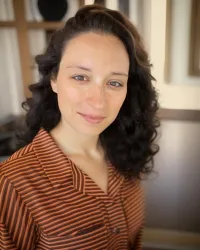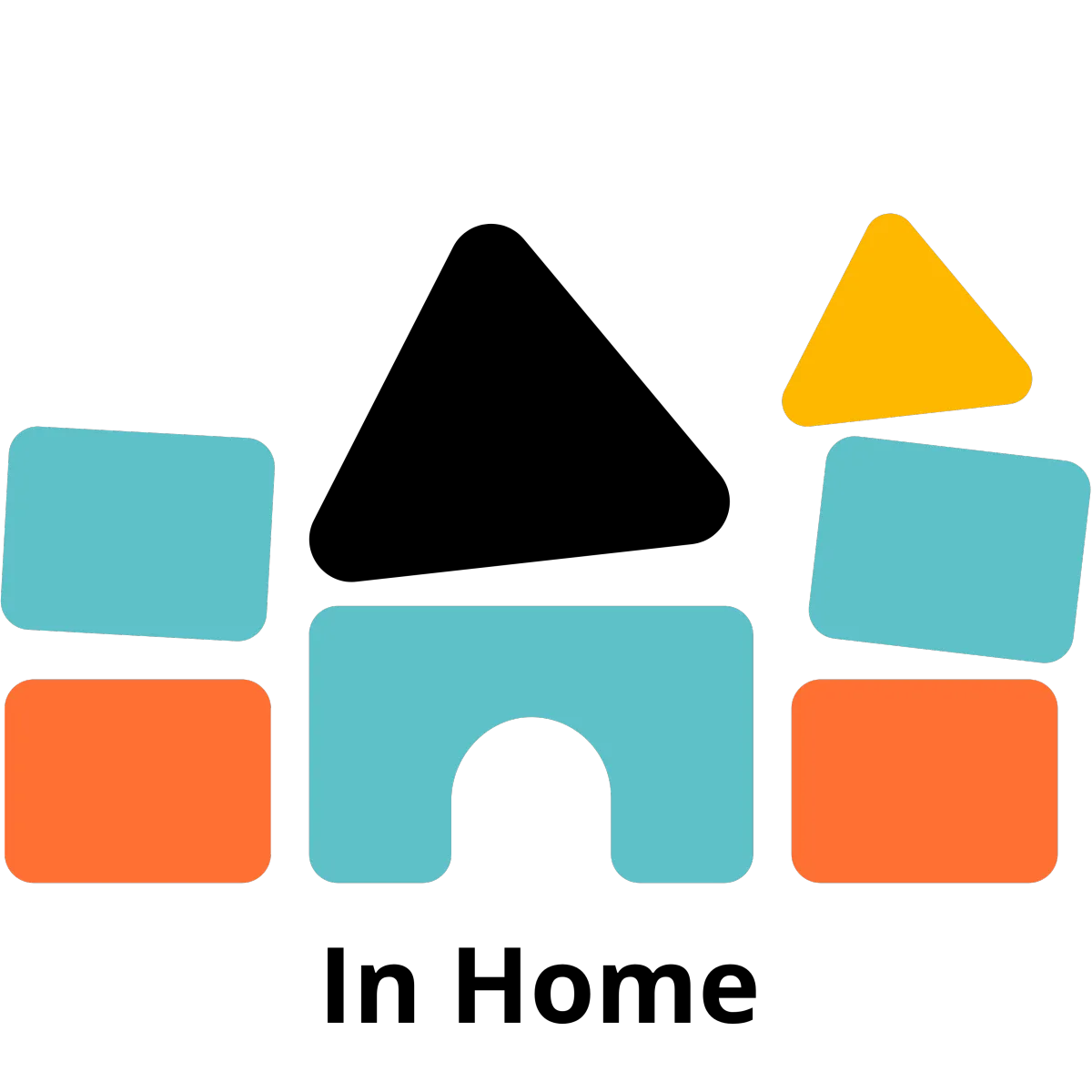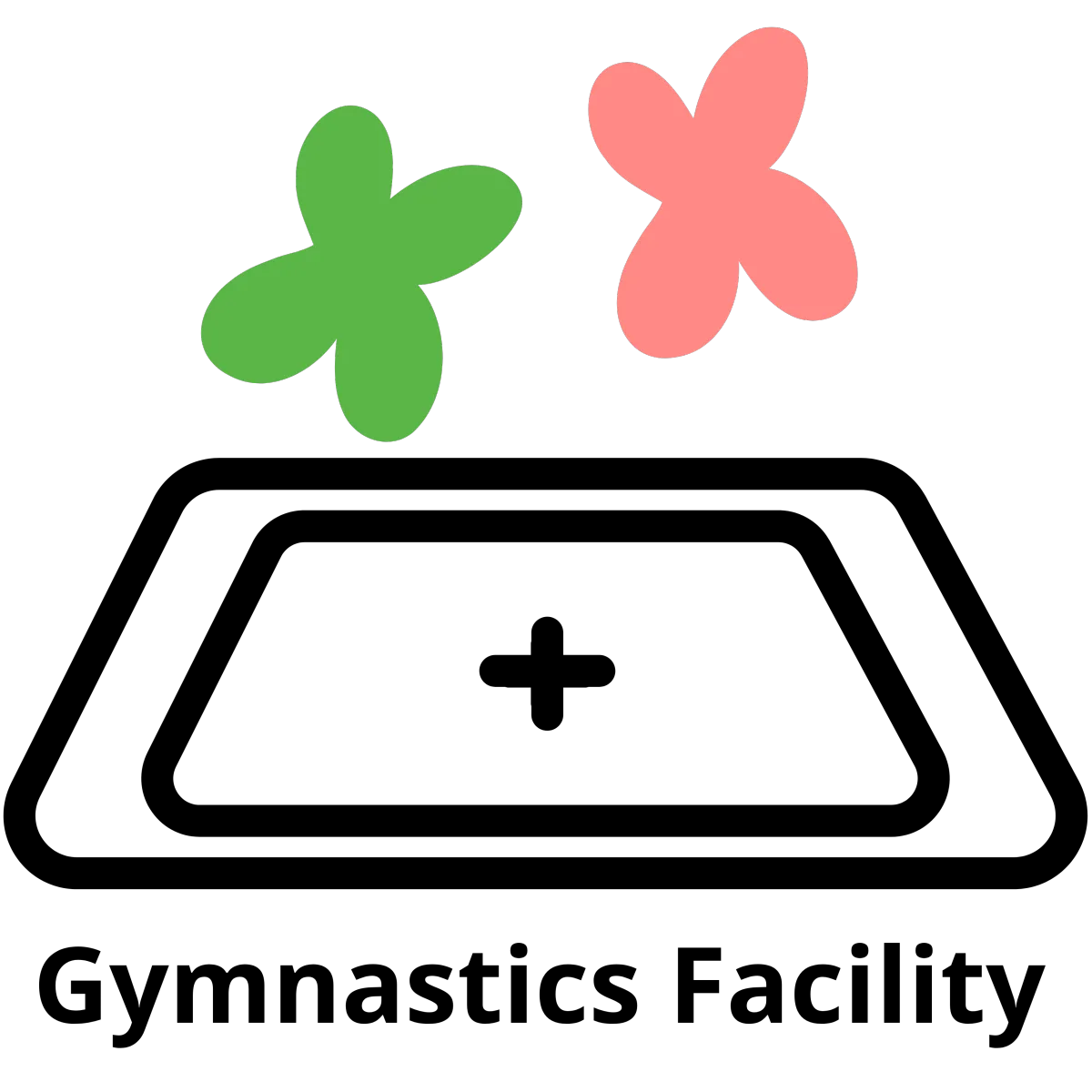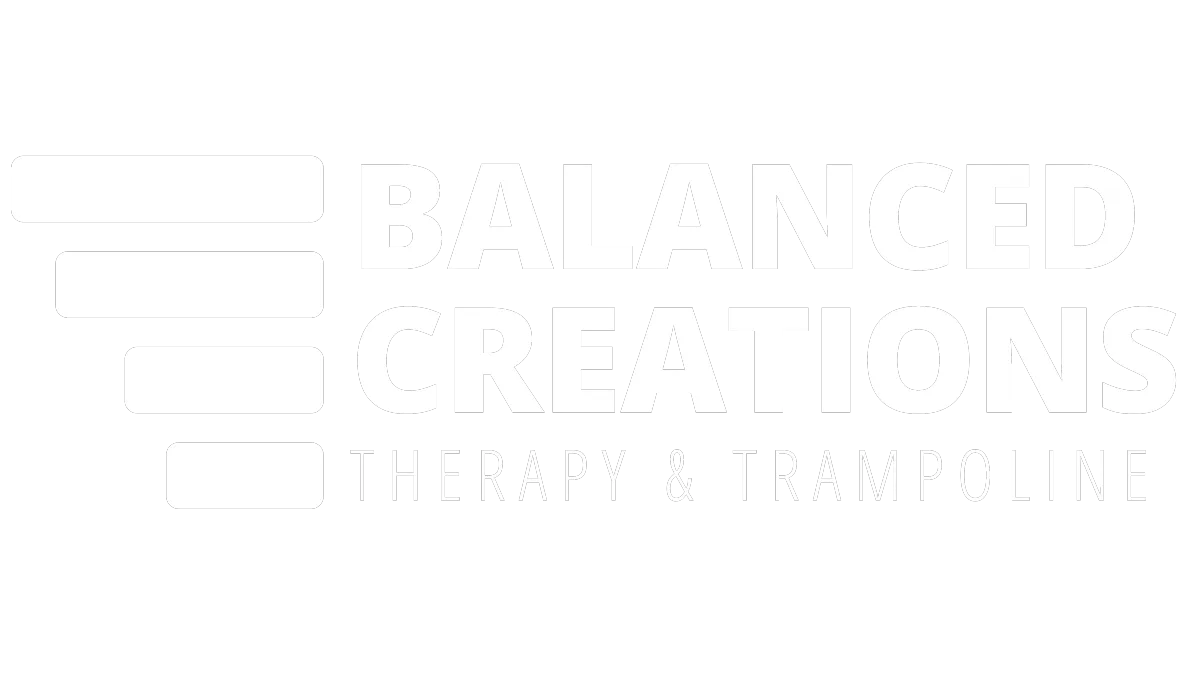Building Confidence and Growth Through Play & Gymnastics!
Contact us today to learn how our pediatric physical therapy & adaptive gymnastics programs can support your child’s wellness journey.
At Balanced Creations Therapy & Trampoline, we support and guide children through neurodiversity-affirming, play-based, child-led therapeutic trampoline, pediatric physical therapy, and adaptive gymnastics.
Our mission is to create a safe, inclusive space where every child is seen, heard, and valued, and their health and wellness journey is guided with connection and trust.
Ready to connect? Schedule a free Introductory Phone Call or fill out our Inquiry Form to reach us via email.

Inquiry Form
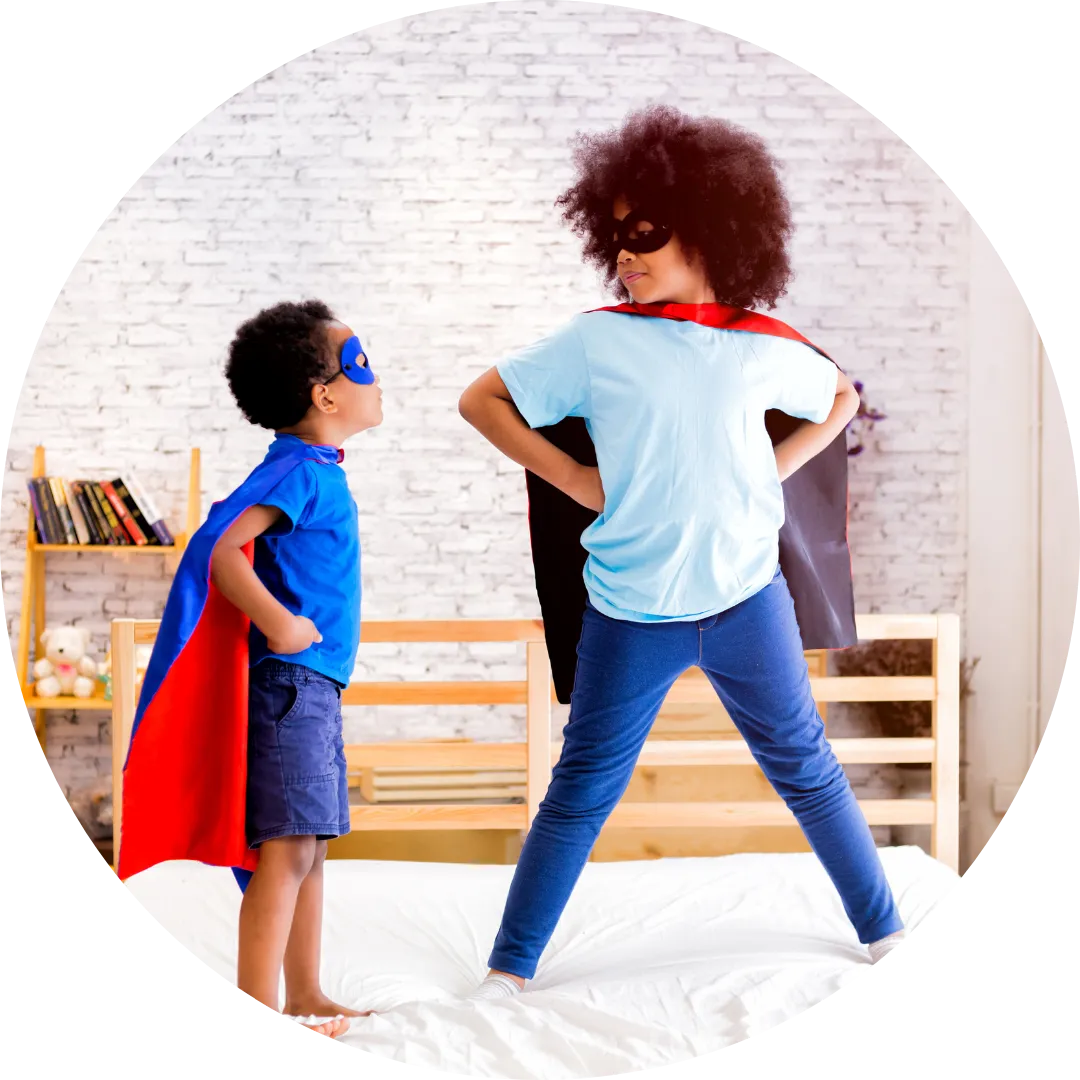
Confident Child

Coming Soon.
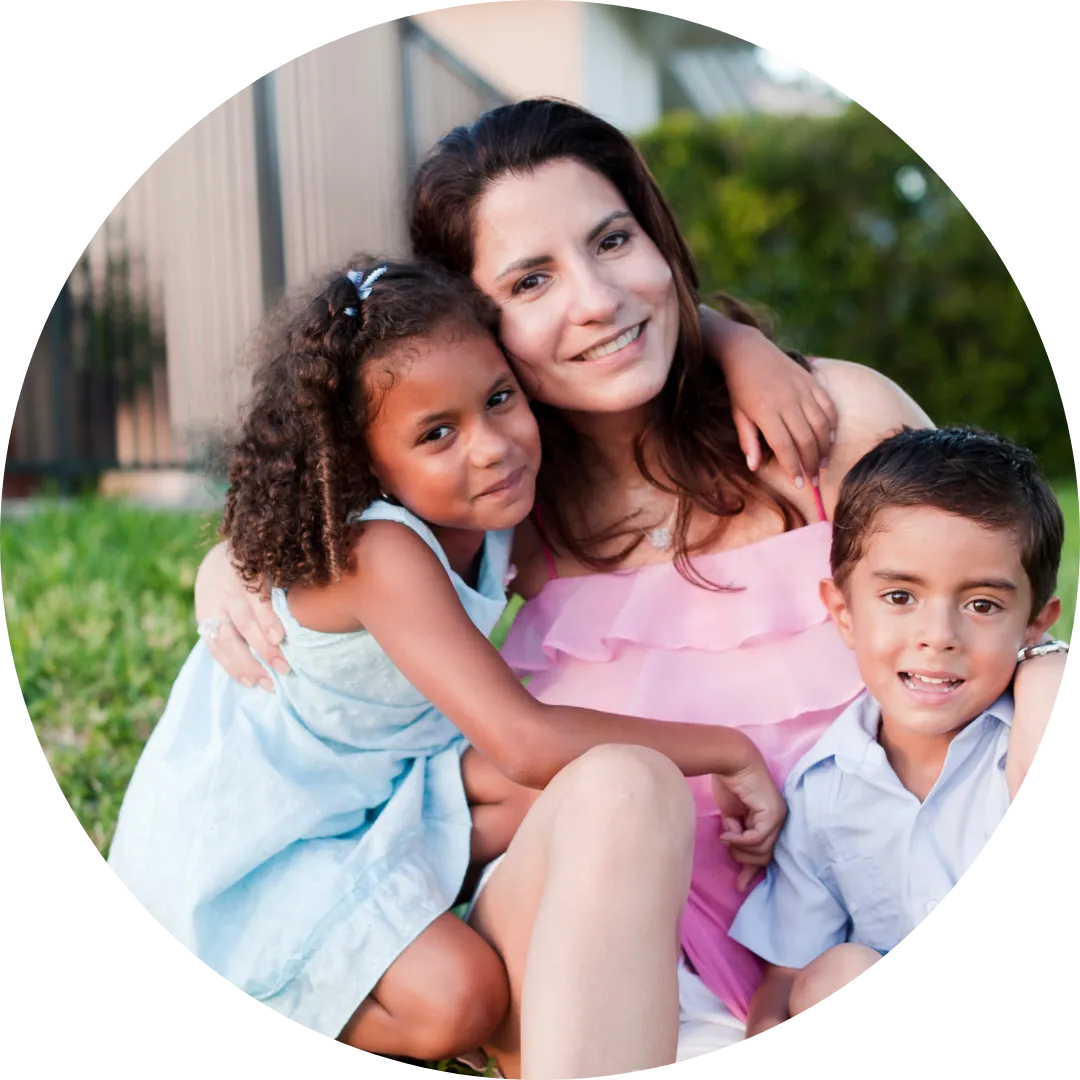
Supported Mother

Coming Soon.
Hear From Our Clients
We support the whole child.
We try to take a holistic approach to physical therapy and support the whole child and their family to meet them where they are at along their life journey.
Resources for Parents and Clinicians
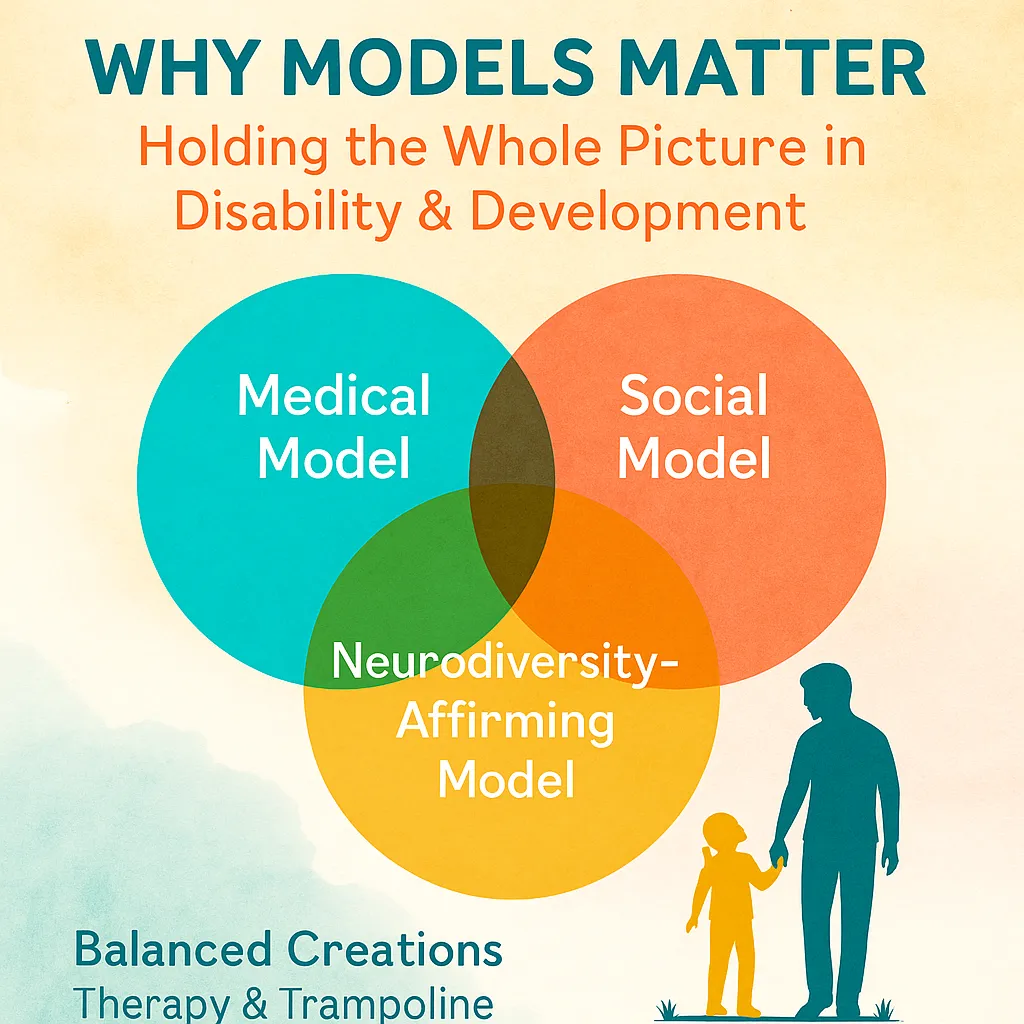
Why Models Matter: Holding the Whole Picture in Disability & Development
The other day, I came across a quote from a mom of a medically complex child that stopped me in my tracks:
“Me watching people argue over whether autism is genetic or environmental, knowing they are all partially correct but also not wanting to have to explain how nuanced the topic is to people who are only capable of black and white thinking.”
I felt that.
But maybe in a more gentle way—because I do want to explain.
I believe it’s part of my job.
As a pediatric physical therapist and adaptive gymnastics specialist, I sit at the intersection of many conversations. Families come to me navigating diagnoses, developmental differences, and big, overwhelming questions:
Why is my child struggling with this?
What can I do to help?
Who can help them thrive?
The truth is—it’s complicated.
There are layers. There are models.
And there’s not always one “right” way to see it.
We need all the models, all the lenses, and all the people in the room.
The Models That Guide Us
Here are three of the most common frameworks used in disability and neurodiversity work—each one offering something valuable:
Medical Model
This model sees disability as stemming from a health condition or impairment. Its goal is to diagnose, treat, and manage symptoms—and that work is essential.
Genetics matter. Biology matters. Medical teams help us understand the “why” behind complex conditions. Their contributions can be life-changing, especially for children who need interventions, medications, surgeries, or specialized care.
I collaborate with physicians and specialists often, and I’m deeply grateful for what they offer to a child’s journey.
Social Model
This model shifts the focus from the individual to the environment. It asks: What’s getting in the way?
Is it the physical space? The expectations? The systems?
The social model brought us ramps, IEPs, inclusion laws, and anti-discrimination protections. It reminds us that the challenge isn’t always the body—sometimes, it’s the barriers around it.
Neurodiversity-Affirming Model
This model views neurological and developmental differences as natural variations in how human brains and bodies work—not deficits to be fixed.
It centers dignity, autonomy, and lived experience.
It asks: Is this person struggling because of their body—or because their body isn’t being supported in the way it needs?
This lens encourages us to honor sensory needs, communication styles, emotional safety, and self-advocacy—not just motor milestones or checklists.
Building the Village
These aren’t competing frameworks.
They’re different perspectives—and we need all of them.
I can’t change someone’s DNA or diagnose their condition.
But I can help that child feel strong, safe, and seen in movement.
I can’t prescribe medication.
But I can help families bridge the gap between the medical world and everyday life.
I can’t change the entire system overnight.
But I can teach coaches, parents, and communities how to adapt, include, and respond with empathy.
Sometimes that means teaching a new motor skill.
Sometimes it means modifying equipment.
Sometimes it means embracing a child’s unique way of moving through the world.
Always—it means showing up with care.
Holding the Whole Picture
When we let each model do its job—when we honor both genetics and environment, both medical treatment and social change—we build a more complete support system.
Not just for kids, but for the families and professionals who love them.
At Balanced Creations, we stand in the middle of that picture.
We use science, empathy, and movement to help kids live more comfortably in their bodies—without asking them to be someone they’re not.
Because thriving doesn’t come from one approach.
It comes from many.
Let’s Build the Village Together
We believe in the power of collaboration—between professionals, parents, and perspectives. If you’re looking for support that honors the whole child and the whole village, we’re ready to meet you there.
Ready to help your child thrive? Contact us today to schedule a consultation for pediatric physical therapy in Fort Worth, Texas.
Service Locations
Offering pediatric therapy and adaptive gymnastics in West Fort Worth, Texas. We focus on play-based, child-led, and neurodiversity-affirming care to help every child thrive.
In-Home Service Areas in the North Texas Area Include: Aledo, Annetta, Weatherford, Willow Park, Hudson Oaks, White Settlement
(Please contact us to see if you live within our drive radius)
Pediatric Physical Therapy and Adaptive Gymnastics Classes
